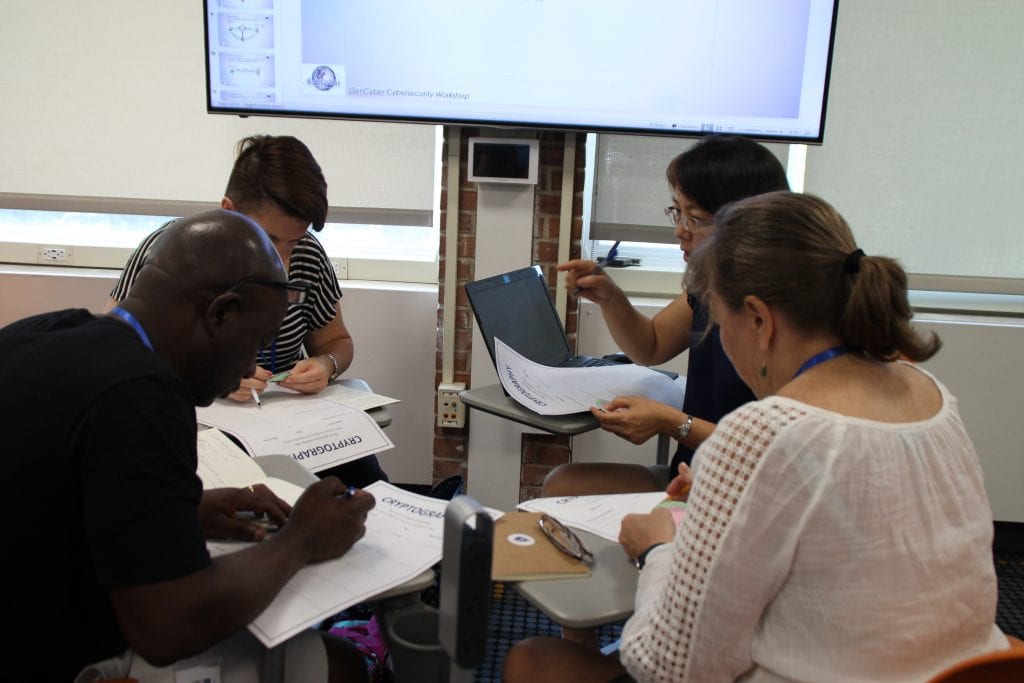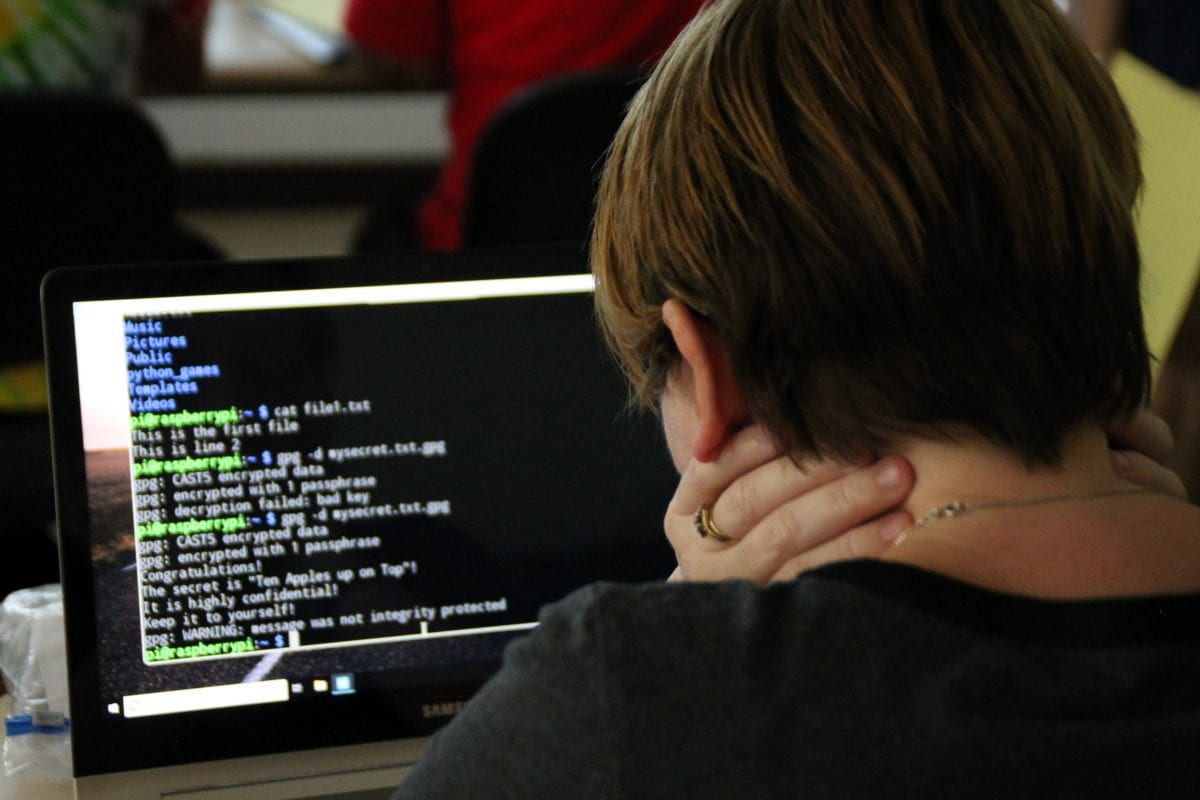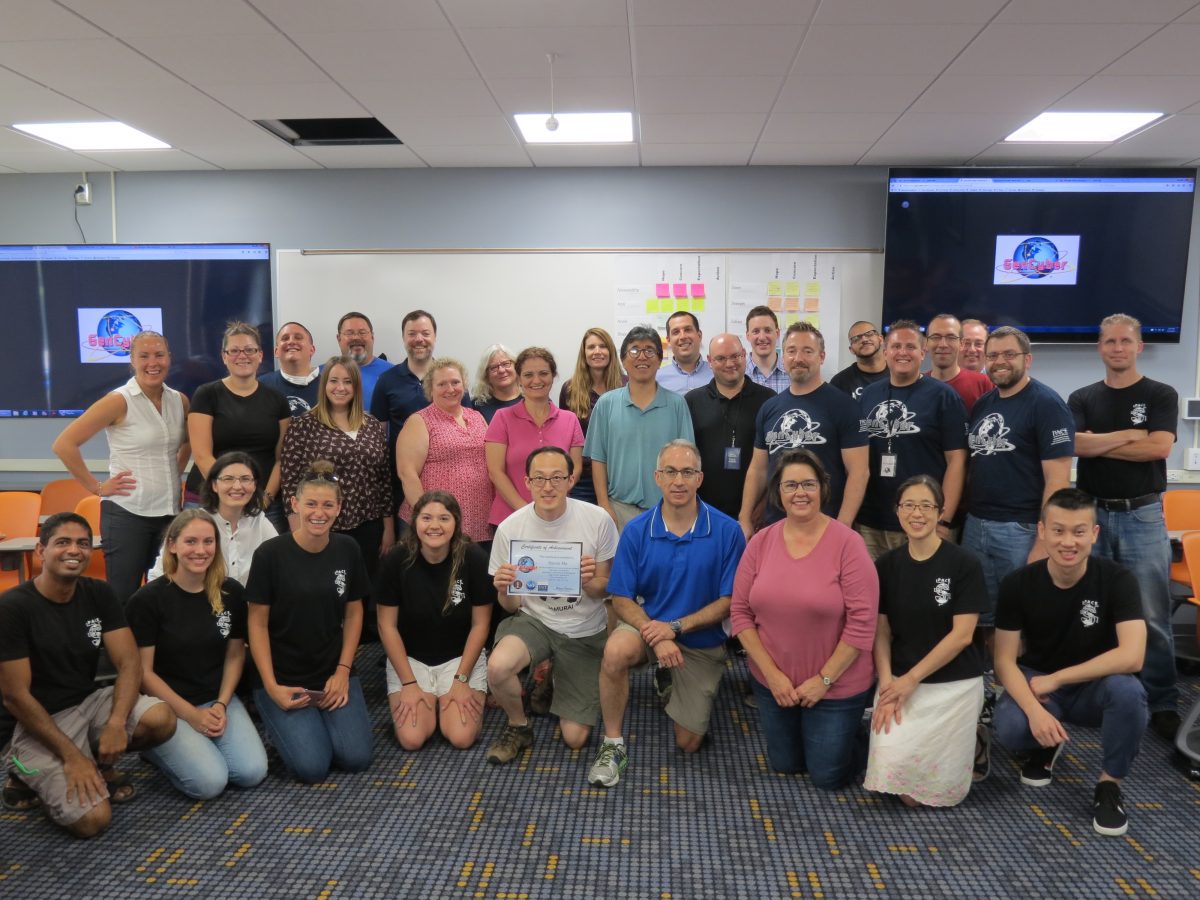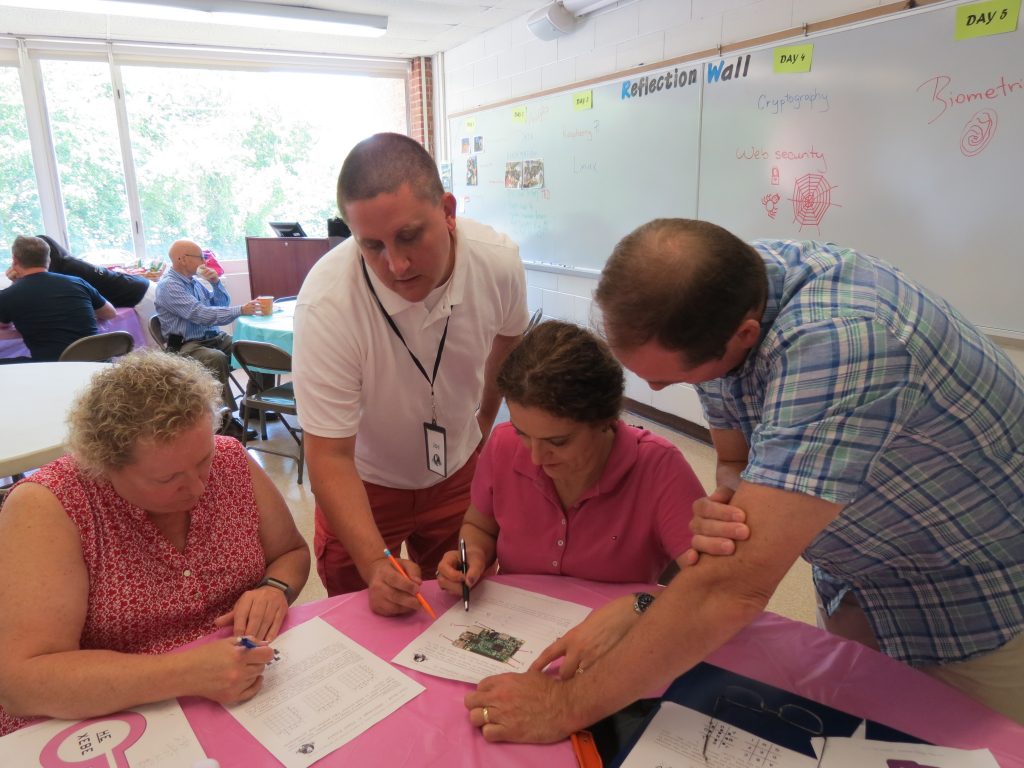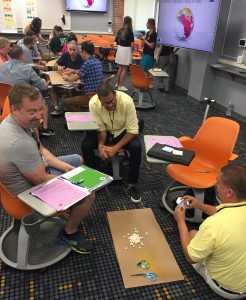For the fourth year, Pace University’s Seidenberg School of Computer Science and Information Systems hosts a GenCyber cybersecurity workshop for high school teachers. The workshop, which is supported by a grant from the National Security Agency (NSA) and the National Science Foundation (NSF), aims to introduce methods for educators to bring cybersecurity into the classroom through a seven-day program on Pace University’s Pleasantville campus.
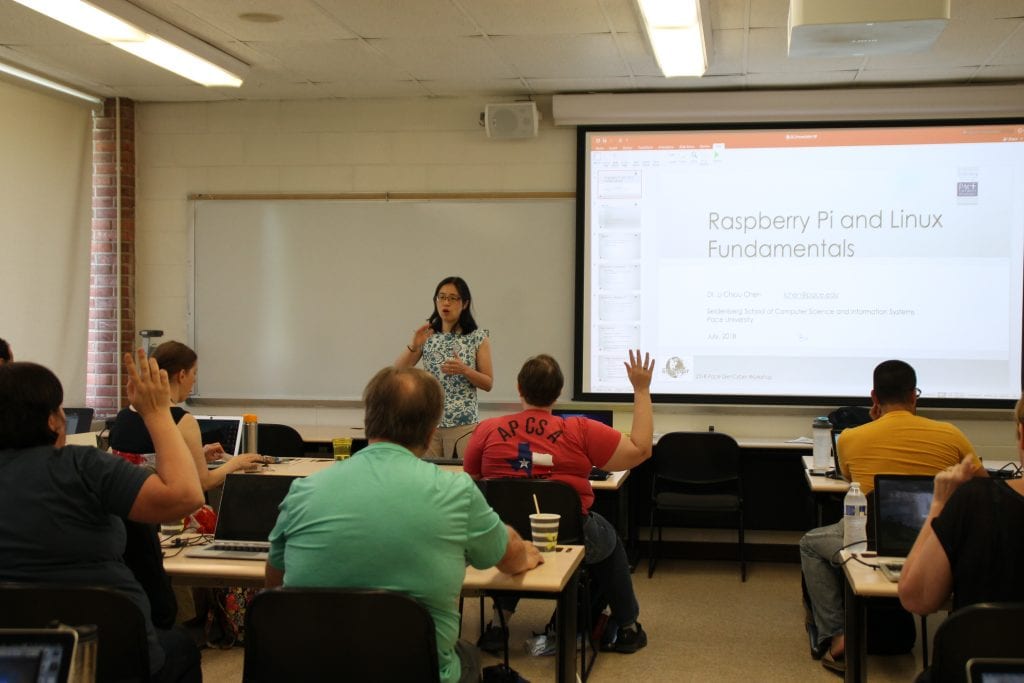
Over the course of the workshop, the 24 high school teachers in residence will undergo rigorous training in various cybersecurity topics and learn the tools to impart that knowledge to high school students when they return to the classroom. The workshop kicked off on Thursday, July 12, 2018, and will run until Friday, July 20.
On day one, the workshop kicked off into high gear with unplugged activities running in the morning before it was joined by a few guests for lunch. Dean of the Seidenberg School, Jonathan Hill, as well as the new Pace Provost, Vanya Quinones, stopped by to greet the participants.
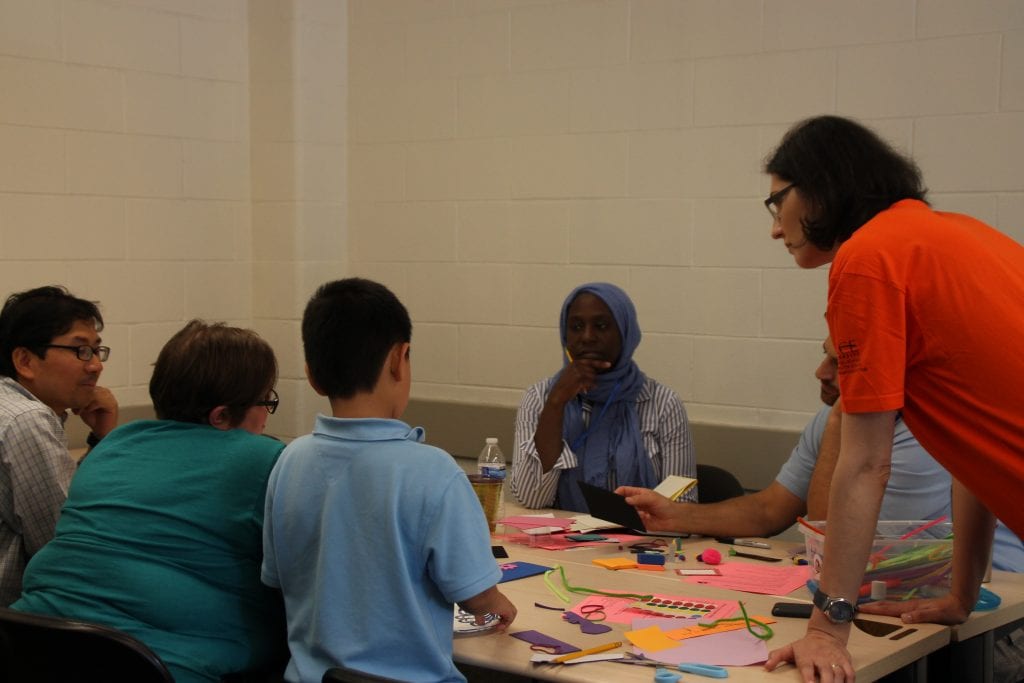
Andreea Cotoranu, the Assistant Dean of Academic Innovation, and the Pace GenCyber Program Director, welcomed the group and thanked her “partner in crime,” Dr. Li-Chiou Chen, Chair of the Information Technology Department, and Pace GenCyber lead instructor, for her contributions to designing and teaching the workshop. “I am very excited you are all here,” said Dr. Chen.
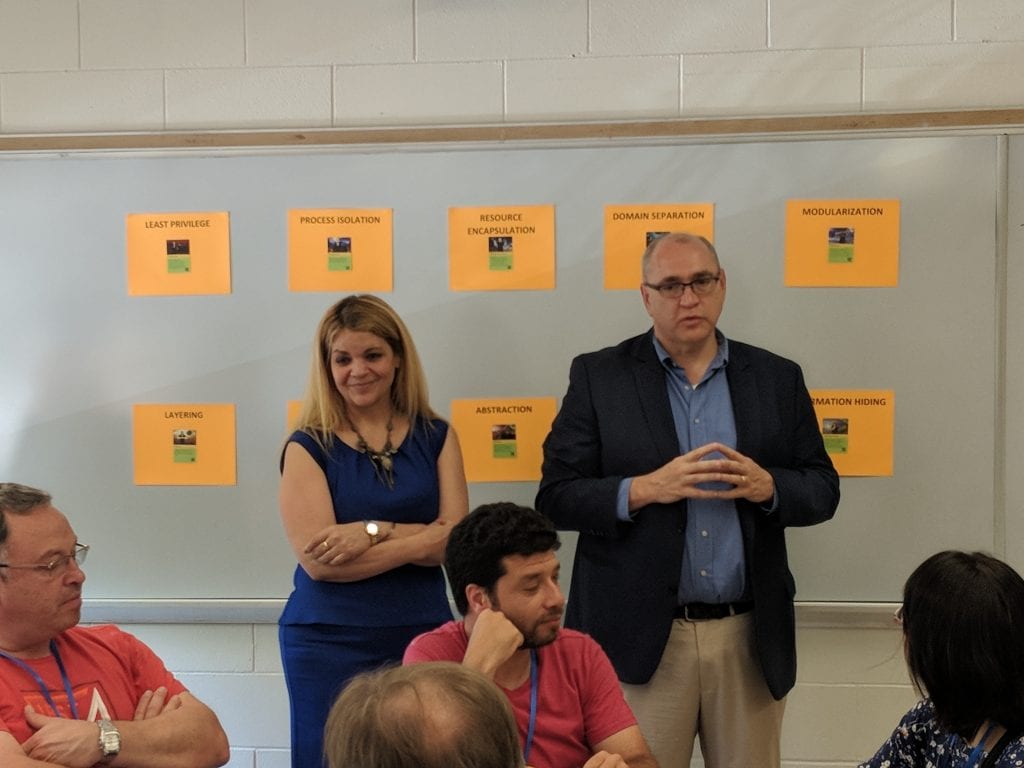
Dean Hill gave participants an overview of their host: “Welcome to Pace University and the Seidenberg School,” he said. “The Seidenberg School is the third oldest school of computer science in the country. We are celebrating our 35th anniversary this year and there are several things that are . . . part of our ethos that we are incredibly proud of, and having the opportunity to host you here is a great reflection of that.
“We believe in a strong pipeline from K-12 all the way through to the highest levels at University so we have such deep respect for all the things you do in your classrooms.
“This is a competitive program; we get a lot of applications, and the fact that you are here speaks volumes . . . the material you are going to get is incredibly compelling.” He added: “Pace is a university where you not only get a great technical education, but you get a great liberal education and a great scientific education.”
Dr. Hill then introduced the new Provost of Pace University, Vanya Quinones, who was only on her sixth day so far at Pace! Provost Quinones welcomed the attendees, saying that she was glad to meet them so early on in her tenure at Pace. “It shows how Pace is committed to the future of our country and future generations understanding the importance of cybersecurity, computing, and technology,” she said. “We are proud that you are here, and we are excited that you are able to come and meet Pace and see the wonderful things that we do here.”

The Seidenberg School is delighted to run the GenCyber workshop for high school teachers as it fully aligns with our cybersecurity initiative, which emphasizes the importance of cybersecurity education and awareness today and going forward. The School has been having a powerful impact in higher education and industry communities for years, but the chance to extend our impact into high school classrooms is an opportunity we are extremely proud of and enthusiastic about.
“We are excited to have you here,” said Assistant Dean Andreea Cotoranu. “This year, with this cohort, we are reaching [a total of] 90 high school teachers across the country that have been participating in Pace GenCyber. By teaching you, the teachers, we have an opportunity to impact thousands of students across the country and we are very proud of that.”
